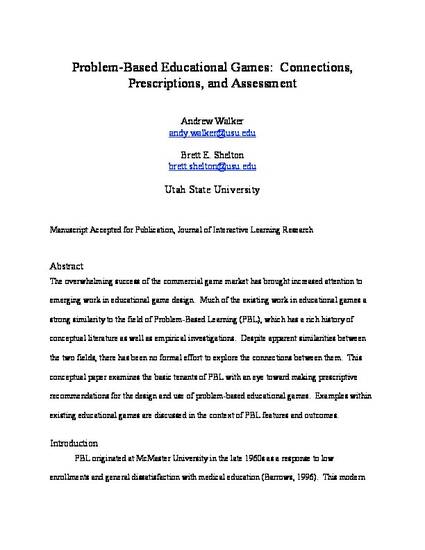
Article
Problem-Based Educational Games: Connections, Prescriptions, and Assessment
Journal of Interactive Learning Research
Document Type
Article
Publisher
Association for the Advancement of Computing in Education
Publication Date
10-1-2008
Abstract
The overwhelming success of the commercial game market has brought increased attention to emerging work in educational game design. Much of the existing work in educational games a strong similarity to the field of Problem-Based Learning (PBL), which has a rich history of conceptual literature as well as empirical investigations. Despite apparent similarities between the two fields, there has been no formal effort to explore the connections between them. This conceptual paper examines the basic tenants of PBL with an eye toward making prescriptive recommendations for the design and use of problem-based educational games. Examples within existing educational games are discussed in the context of PBL features and outcomes.
Comments
Copyright for this article remains with Ed/ITLib Digital Library, Association for the Advancement of Computing in Education (AACE) and is being published here with permission. Original publication in the Journal of Interactive Learning Research with online access to the article.
Citation Information
Walker, A., & Shelton, B. E. (2008). Problem-based educational games: Connections, prescriptions, and assessment. Journal of Interactive Learning Research, 19(4), 663-684.
